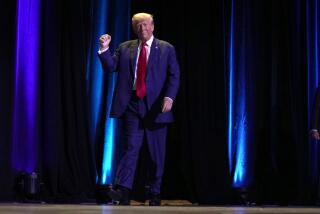When the Charges Go High Up : Moving to extend the vital special-counsel law
- Share via
Sometime in early 1994, after expected action by the House, the federal law that authorizes investigations of public officials by independent counsels should reappear on the statute books, after an absence of more than a year. The need for such a law remains as strong today as it was in 1978 when Congress, responding to public outrage over evidence of attempted cover-ups of criminal activities by the Nixon Administration during the Watergate scandal, made the first provision for special prosecutors.
What drives that need? Simply the common-sense fact that any administration faces an inherent conflict of interest when it comes to investigating itself. No man, the eminent jurist Sir Edward Coke wrote four centuries ago, enunciating what has become a basic principle of common law, should sit in judgment on his own cause. Nor, reasonably, should any government. Self-investigation inevitably comes to be seen as self-serving. The independent-counsel law, we think, has arguably become indispensable in adding credibility to the investigatory process.
The Senate’s 76-21 vote to extend the law for another five years--it had twice before been extended--came after some restrictions of time and cost and were placed on the counsel’s activities.
Any investigation that ran longer than two years or cost more than $2 million would have to be reauthorized by a special panel of the U.S. Court of Appeals in Washington. This is the body that is empowered to name special counsels, at the request of the attorney general. That condition is reasonable. So is the provision that restricts prosecutors from accusing an official of criminal activity unless an indictment was sought against that official. The job of the special counsel is not to sully the reputations of those who are simply suspected of wrongdoing, but to gather evidence that can lead to the prosecution of wrongdoing. Under the revived law, the attorney general could also seek to have a special counsel named in cases involving possible criminal conduct by members of Congress.
Sen. William S. Cohen (R-Me.), who co-sponsored the revived law with Sen. Carl Levin (D-Mich.), says “this statute helps assure the public that criminal wrongdoing by high-level . . . officials will not be buried or tolerated and that top-level officials will not be treated as if they are above the law.” A small backlog of potential work for special counsels may already exist. The special-prosecutor law is the best means available to keep partisan politics out of investigations of top officials. Americans should welcome its revival.
More to Read
Get the L.A. Times Politics newsletter
Deeply reported insights into legislation, politics and policy from Sacramento, Washington and beyond. In your inbox twice per week.
You may occasionally receive promotional content from the Los Angeles Times.









